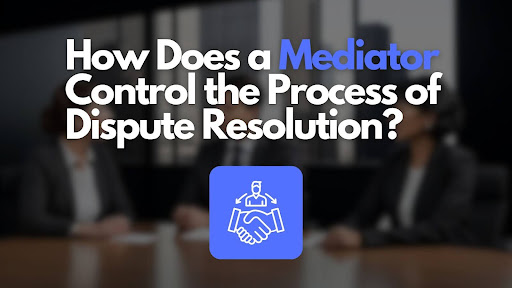As a seasoned mediator at Resolve Wannon, I’ve witnessed firsthand the transformative power of mediation in resolving conflicts. It’s a process that requires skill, empathy, and a deep understanding of human dynamics. In this article, I’ll share insights into how we, as mediators, control the process of dispute resolution, ensuring a fair and efficient outcome for all parties involved.
The Mediator’s Role: A Guiding Light in Conflict Resolution
Picture a mediator as a lighthouse, guiding disputing parties through the choppy waters of conflict. Our primary role is to facilitate communication, helping each side articulate their concerns and understand the other’s perspective. It’s a delicate balance – we must remain impartial, focusing on the process rather than taking sides.
As a neutral third party, we create a safe space for open dialogue. We encourage collaboration, helping parties explore options and alternatives they might not have considered on their own. And we ensure confidentiality, which is protected by California’s Evidence Code §§ 1115-1128, fostering an environment of trust and candor.
The Mediation Process: A Roadmap to Resolution
Mediation is a journey, and like any journey, it requires a roadmap. The process typically unfolds in several stages, each designed to move the parties closer to a mutually satisfactory resolution.
It begins with preparation – the parties agree to mediate and select a mediator. We work with them to set the agenda and logistics for the sessions.
In joint discussions, we guide the parties in identifying the issues and interests at the heart of the conflict. This is where the real work begins, as we uncover the underlying concerns that may not be immediately apparent.
We also hold private caucuses, and separate meetings with each party to explore sensitive issues and gather confidential information. This helps us understand each side’s true interests and positions.
Then comes the negotiation phase, where we assist the parties in brainstorming solutions and negotiating terms. It’s a collaborative process that often leads to creative, win-win solutions.
The Power of Mediation: Resolving Disputes Through Collaboration
So, how does mediation actually resolve disputes? The key lies in its collaborative, non-adversarial approach. Unlike litigation, which pits parties against each other, mediation focuses on mutual interests and problem-solving.
As mediators, our skills in facilitating dialogue and negotiation are crucial. We help parties communicate openly and honestly, moving them from positions of conflict to consensus. It’s a process that not only resolves disputes but can also preserve and even improve relationships.
And there are tangible benefits. Mediation is generally faster and less expensive than court proceedings. It’s also highly flexible, allowing for creative solutions tailored to the parties’ unique needs.
Managing the Mediation Process: A Mediator’s Toolkit
As a mediator, I wear many hats. I’m part facilitator, part negotiator, part therapist, and part project manager. It’s my job to keep the process on track, ensuring it remains fair, efficient, and focused on achieving a mutually satisfactory outcome.
I set the agenda, outlining the topics to be discussed and the order of discussion. I facilitate communication, encouraging open dialogue and active listening. I manage emotions, addressing the barriers that may hinder negotiation. I keep the process moving forward, helping parties overcome impasses and reach an agreement.
At Resolve Wannon, we’ve honed these skills over years of practice. We understand the nuances of conflict resolution and know how to adapt our approach to the unique needs of each case. If you’re facing a dispute, consider giving us a call at 310-592-4359. We’re here to help.
The Bottom Line: Mediation Works
Mediation is a powerful tool for resolving disputes. It offers a structured yet flexible process, guided by a skilled and impartial mediator. In California, the legal framework supports mediation, providing confidentiality and other protections that make it an attractive option for many types of disputes.
As a mediator, my role is to control this process, ensuring it remains fair, efficient, and focused on achieving a mutually satisfactory outcome. It’s a role I take seriously and one that I find deeply rewarding.
If you’re facing a conflict, whether it’s a family dispute, a business disagreement, or a landlord-tenant issue, consider mediation. With the right mediator and a willingness to collaborate, you may find that the solution is closer than you think.
Ready to resolve your dispute? Contact Resolve Wannon today at 310-592-4359. Our experienced mediators are here to guide you through the process.
Mediation Explained: Frequently Asked Questions
1. How long does mediation take?
The duration of mediation varies but typically takes less time than litigation. Many mediations are resolved in a few sessions.
2. Do I need an attorney for mediation?
While not required, having an attorney can be beneficial, especially for legal issues. Attorneys can provide legal advice and ensure that agreements are fair and comprehensive. We also specialize in resolving disputes pre-litigation where one or both parties may be unrepresented.
3. What types of disputes can be mediated?
Most civil disputes can be mediated, including employment, personal injury, business disputes, and landlord-tenant issues. Mediation is particularly useful when parties wish to maintain a relationship.
4. How confidential is mediation?
Mediation is highly confidential. In California, the evidence code ensures that communications during mediation cannot be used in court, encouraging open and honest dialogue.
